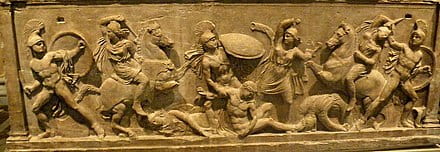The Very Best Men in Greek Mythology
By Maggie Yuan
Nearly every classics student that I’ve met was obsessed with Greco-Roman mythology as a child. It didn’t matter whether we read D’Aulaires’ Book of Greek Myths or Percy Jackson, we were all fascinated by this ancient world filled with trickster gods and dashing heroes. But looking back, the stories themselves were pretty intense for a readership of children…









